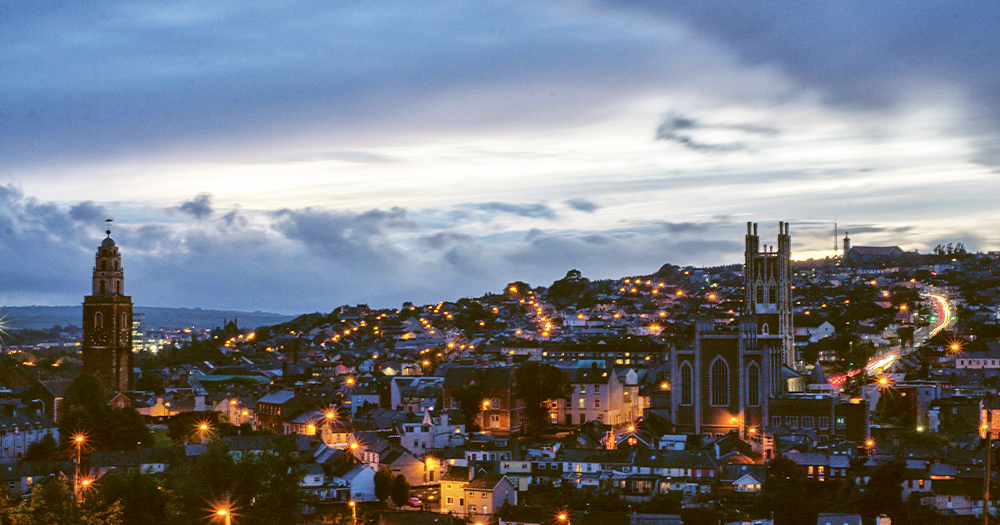When Ross Hunter left his hometown to study in Dublin, he worried about finding a queer community when leaving the capital.
Like many LGBTQ+ folk in secondary school I was not chief of the banter brigade, nor was I queen of the prom. Quite the opposite. Being overtly camp in a sea of rugby-mad lads always rendered me different from my classmates.
I never fitted in, and I anxiously sought a sense of belonging. On my first day of University, I practically gasped at the sight of another queer person. I soon realised that I would no longer be the only LGBTQ+ person in my vicinity – every corner of the campus was crawling with us. I slowly began to meet other like-minded folks, all finding our queer community, and grew gradually more comfortable in my identity.
In my ignorance, I inferred that this newfound sense of belonging was only available to me in the capital. I reckoned that living anywhere with a smaller LGBTQ+ scene than Dublin meant returning to that feeling of being on the outside. However, after spending enough years in the city that I could barely distinguish a horse and a cow I received the opportunity to study medicine in Cork.
It had always been my dream to become a doctor, but the prospect of moving to a smaller city riddled me with anxiety. Would I struggle to meet other like-minded LGBTQ+ people? Would I feel like the odd one out again? None of my concerns materialised. In fact, in an unexpected turn of events, finding my place as an LGBTQ+ person in Cork happened far quicker than it had in Dublin.
Having now spent two years living in Cork City I have made some realisations about LGBTQ+ life outside of big cities like Dublin. It also has inspired me to investigate queer life in small towns and villages. Is bigger really better when it comes to homeplaces for LGBTQ+ people? Are big-city LGBTQ+ folk any happier than the country bumpkins?
I always believed that I needed to be surrounded by masses of LGBTQ+ people to feel I belonged. While queer visibility is undeniably important for many LGBTQ+ inhabitants of an area, I have found that when it comes to forming intimate friendships and relationships, quality matters far more than quantity.
In both Cork and Dublin, I have made fulfilling friendships with other queer and straight people who fulfil my need for community and belonging. As Stephen Healy, a 47 year-old gay man from a small town in rural Cork highlighted, for many queer people in smaller rural areas what matters is having people that make you feel understood and supported regardless of their own identity
“I’m not interested in what sexuality they [friends] are. As long as I like them, and they like me, then I am friends with them.”
Stephen expressed a lot of affection for his “three great neighbours” and praised his work environment, noting how “everyone was very accepting” of his sexuality and “once [he] accepted who [he] was then everyone else around [him] did.”
I also realised that engaging with LGBTQ+ people in smaller communities is easier than I had first anticipated. Once I gave LGBTQ+ Cork a quick Google I was inundated with options from LGBTQ+ soccer clubs to yoga groups. Weeks after arriving in Cork I nervously toddled along to a Cork Frontrunners‘ session- the city’s LGBTQ+ athletics group.
My initial anxieties were instantly put to rest by the warm and welcoming members of the group. Stephen had a similar experience in his twenties when he travelled to a group for closeted gay men. He told me how he felt “safe” and how “[they] would talk about everything for three hours and everyone would share what’s happening in their lives.”
Stephen, however, highlighted that access to LGBTQ+ groups or finding a queer community can often be more challenging for folk living in small towns and villages. While talking about growing up in the countryside, Stephen highlighted “rural life is a lot harder to meet people in the LGBTQ+ community”, and “you didn’t really know anyone like you, and it was difficult to travel and integrate.”
Like any other group of people, LGBTQ+ folk are varied and unique in their wants and needs. Some love nothing more than enjoying the peaceful birdsong and calm of country living, while others live for the hustle-bustle of big-city life.
There is no ‘best’ or ‘right’ place or way to live as a queer person. For me? My life in a smaller LGBTQ+ scene is just as colourful and exciting as it was before I moved to Cork. My fear of returning to the loneliness of my closeted days was unfounded. Across Ireland, the LGBTQ+ community is alive and active.
This article originally appeared in GCN Issue 367.
© 2021 GCN (Gay Community News). All rights reserved.
Support GCN
GCN is a free, vital resource for Ireland’s LGBTQ+ community since 1988.
GCN is a trading name of National LGBT Federation CLG, a registered charity - Charity Number: 20034580.
GCN relies on the generous support of the community and allies to sustain the crucial work that we do. Producing GCN is costly, and, in an industry which has been hugely impacted by rising costs, we need your support to help sustain and grow this vital resource.
Supporting GCN for as little as €1.99 per month will help us continue our work as Ireland’s free, independent LGBTQ+ media.

comments. Please sign in to comment.